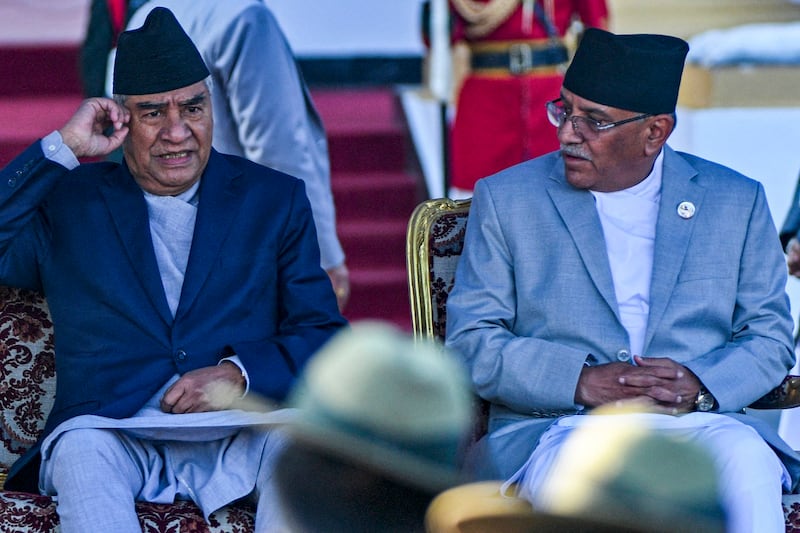Tibetans living as refugees in Nepal are likely to face continued restrictions on their movements and political activities under the government of Nepal’s new prime minister, a former Maoist guerrilla leader who is seen as being close to China, according to analysts and other observers.
Pushpa Kamal Dahal, also called Prachanda, was sworn in on Monday as the head of Nepal’s new government in a deal reached with other political parties in the Himalayan country bordering India and China.
The former leader of a 10-year guerrilla insurgency launched in 1996 that killed more than 17,000, Prachanda, 68, replaces Sher Bahadur Deuba of the Nepali Congress Party as national leader.
Tibetans living in Nepal after escaping from Tibet will see little improvement in their status and rights as refugees under Nepal’s new government, which will remain in power until at least 2025, analysts and rights groups told Radio Free Asia on Wednesday.
“In Nepal and China’s relationship, there are two certainties. The first is Nepal’s One-China policy in terms of what Nepal offers China,” said Santosh Sharma, a foreign policy analyst and co-founder of the Nepal Institute for Policy Research, referring to China’s claim of sovereignty over Tibet. “Every political party and leader in power has adhered to this policy.”
“Secondly, Nepal will control the activities of Tibetan refugees to the extent they will not use Nepal as a launchpad for any political activities,” Sharma said. “And there has been agreement on this across the board no matter who was in power.”
Call to issue refugee cards
The United States and other Western countries have urged Nepal to issue identity cards to Tibetan refugees and grant them other rights, Sharma said. “But this will be a difficult thing to accomplish with Prachanda as prime minister compared to Deuba, who had a more favorable view of the West during his time in office.”
In 1995, Nepal stopped issuing refugee cards for Tibetans who flee across the border from their homeland, which has been under Chinese control since 1951.

“I don’t think that Prachanda will raise the Tibetan refugee issue, and it may not be easy now for Western diplomats to come and visit like U.S. Special Coordinator for Tibetan Issues Uzra Zeya did last year,” Sharma said.
Also speaking to RFA, Sangpo — a Tibetan working at the Human Rights Organization of Nepal — said he sees little hope for improvement in the status of Tibetan refugees living in Nepal under Prachanda’s leadership.
“Actually there is also a possibility that the Chinese communist government’s influence on Nepal will grow, which will further hinder the rights of Tibetans living in Nepal,” Sangpo said.
Nepal is seen by China as a partner in its Belt and Road Initiative to boost global trade through infrastructure development, and Nepal’s government has cited promises of millions of dollars of Chinese investment as a reason for restricting Tibetan activities in the country.
Translated by Tenzin Dickyi for RFA Tibetan. Written in English by Richard Finney. Edited by Malcolm Foster.
